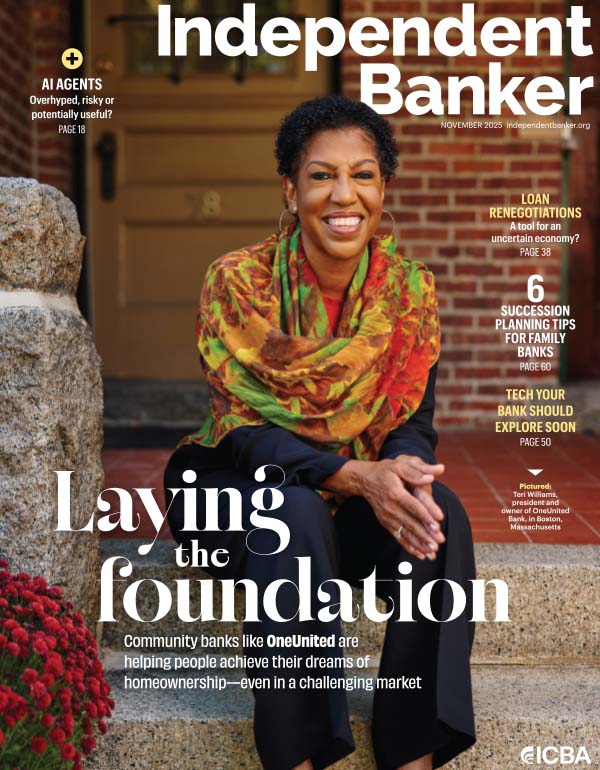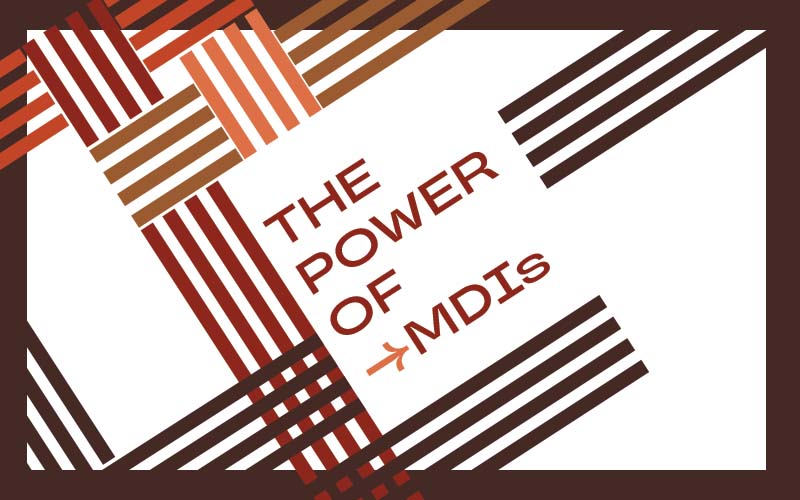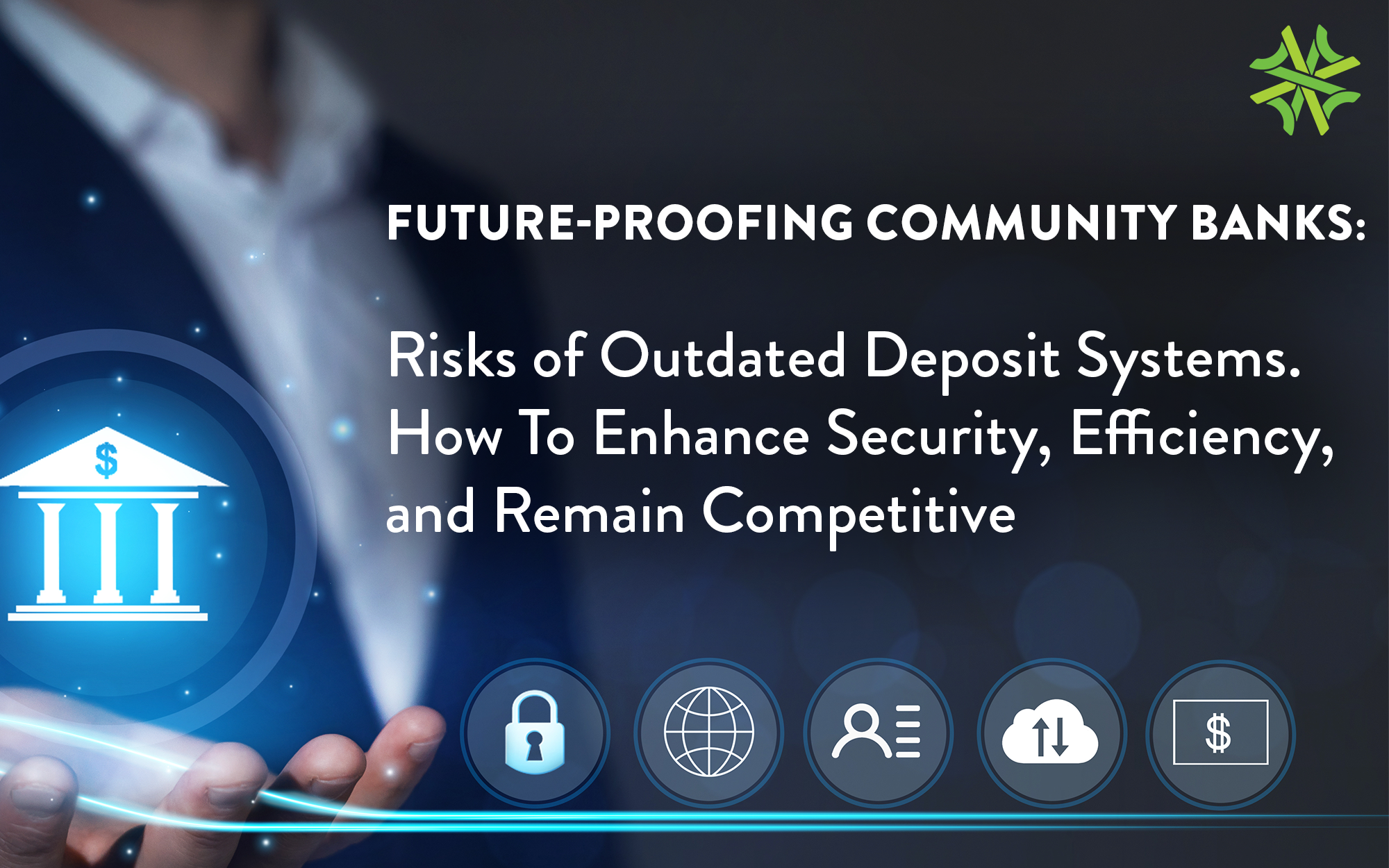Who’s in the conversation?
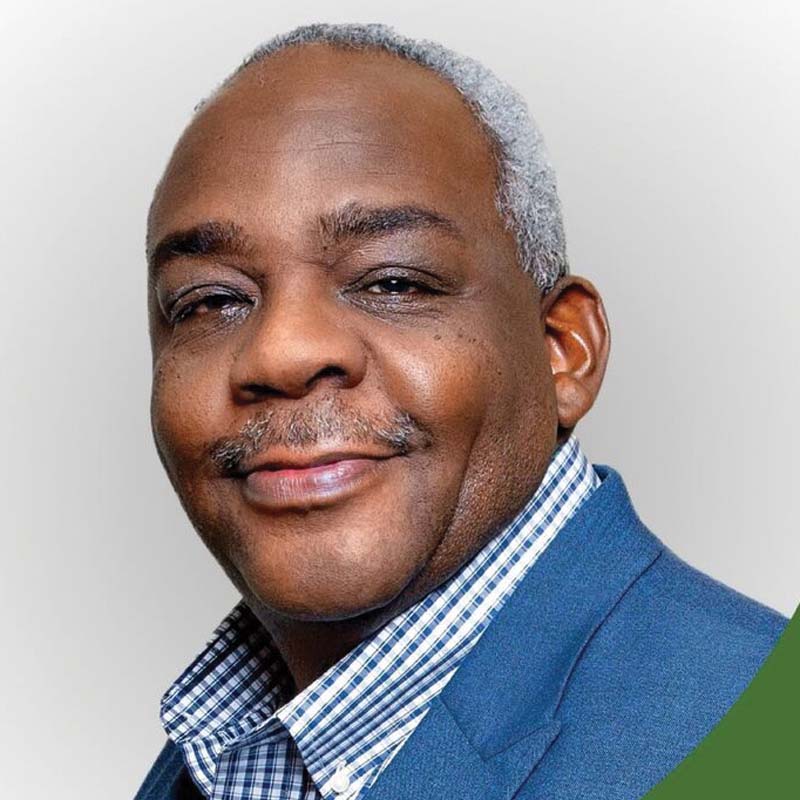
David C. Buggage
Senior consumer lender and partnership officer at $1 billion-asset Liberty Bank and Trust Co. in New Orleans
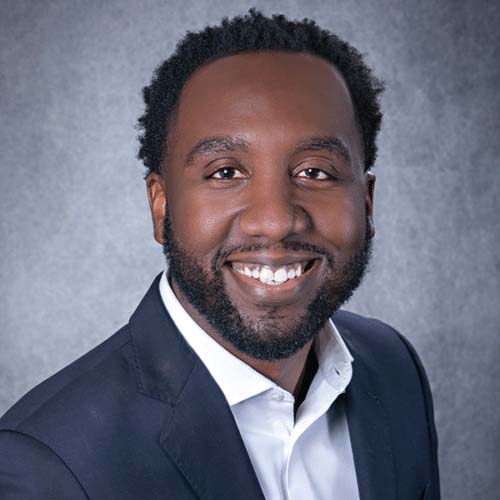
Corey Hammonds
Chief operating and credit officer at $180 million-asset Citizens Savings Bank and Trust Co. in Nashville, Tenn.
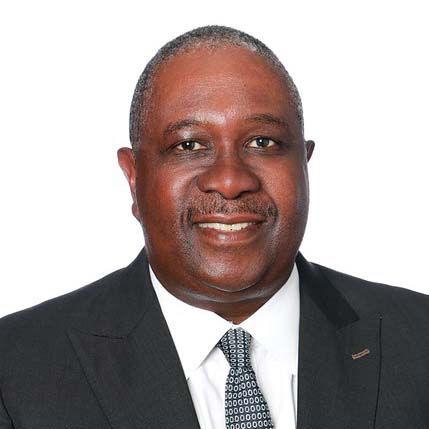
Dimitrius M. Hutcherson
President of $609 million-asset First Independence Bank in Detroit
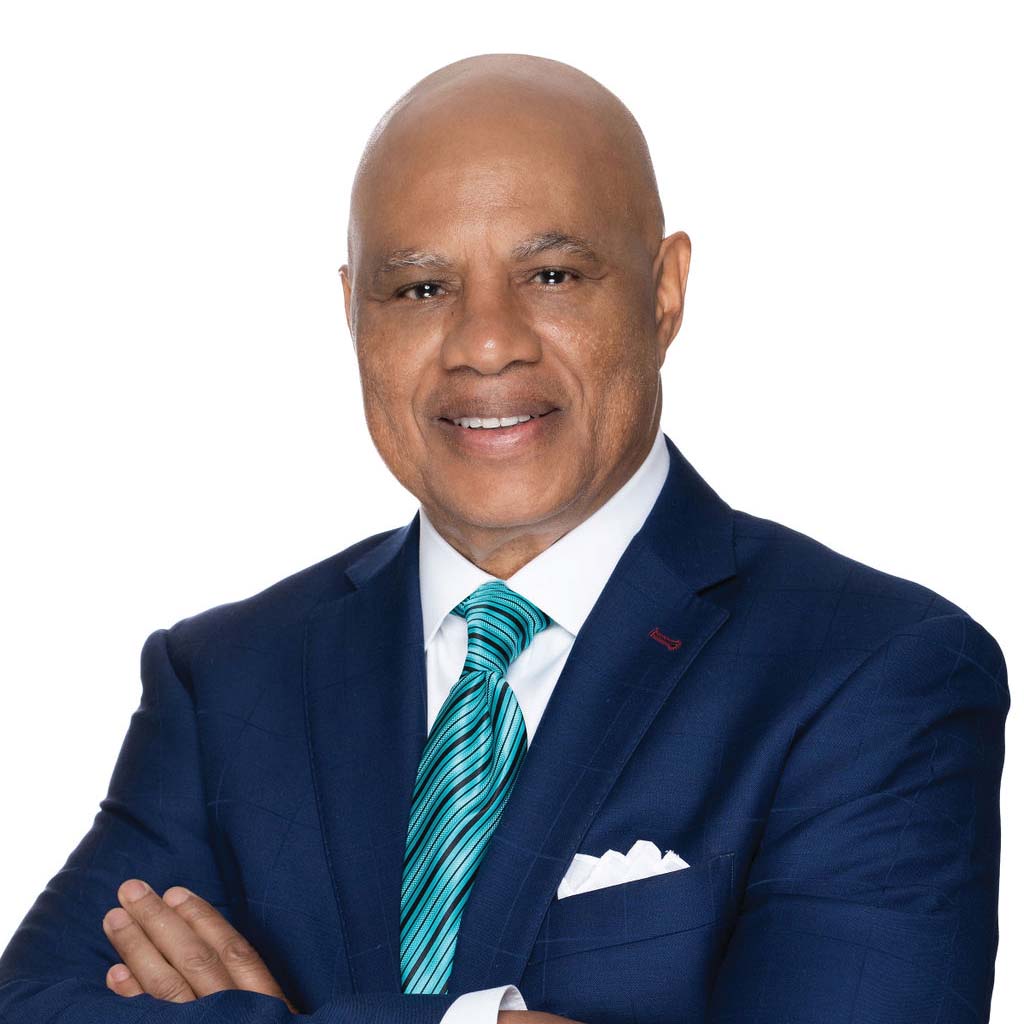
Jordan A. Miller Jr.
Chairman and CEO of $68 million-asset Adelphi Bank in Columbus, Ohio
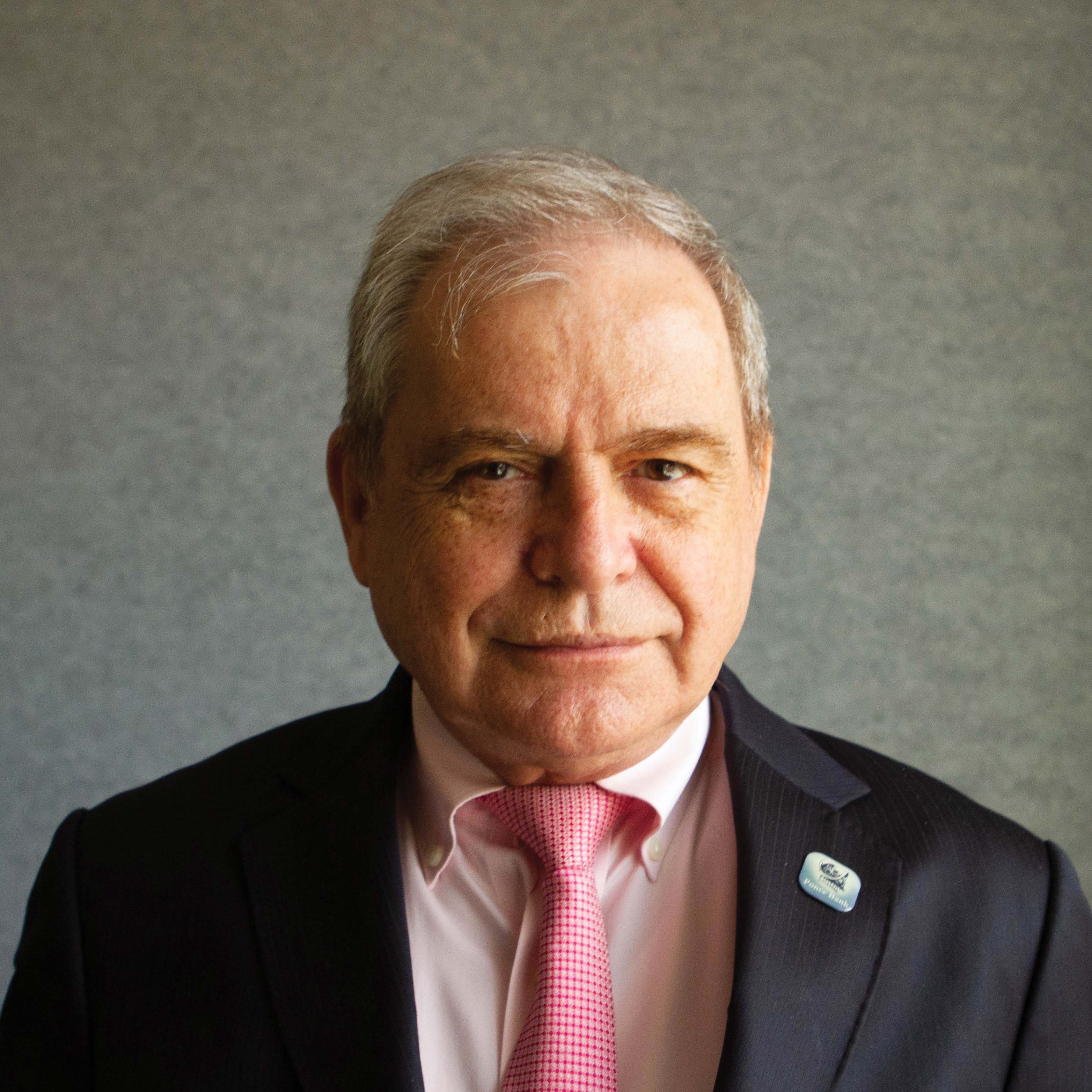
Carlos P. Naudon
President and CEO of $3.1 billion-asset Ponce Bank in Bronx, N.Y.
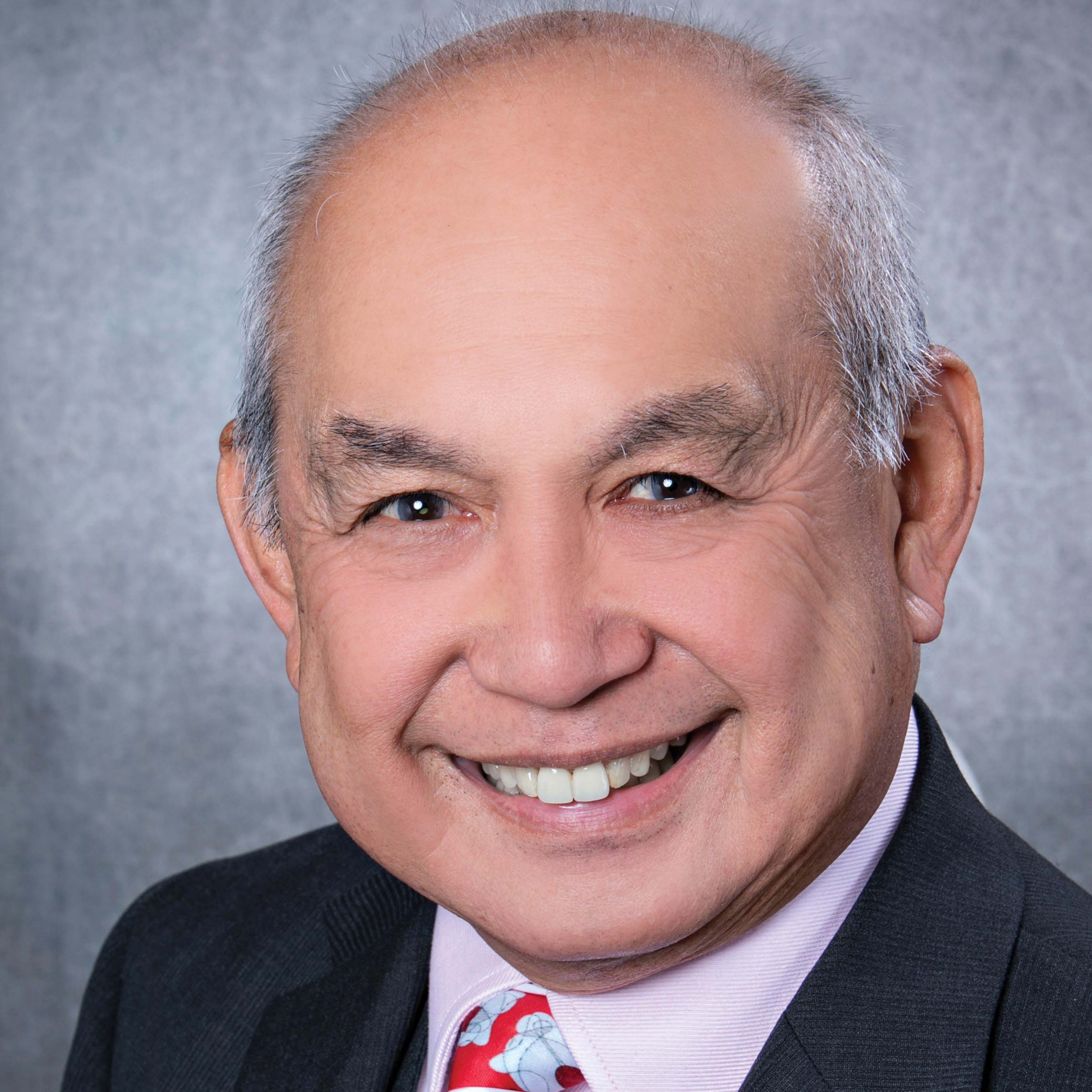
Sergio Ora
President and CEO of $180 million-asset Citizens Savings Bank and Trust Co. in Nashville, Tenn.
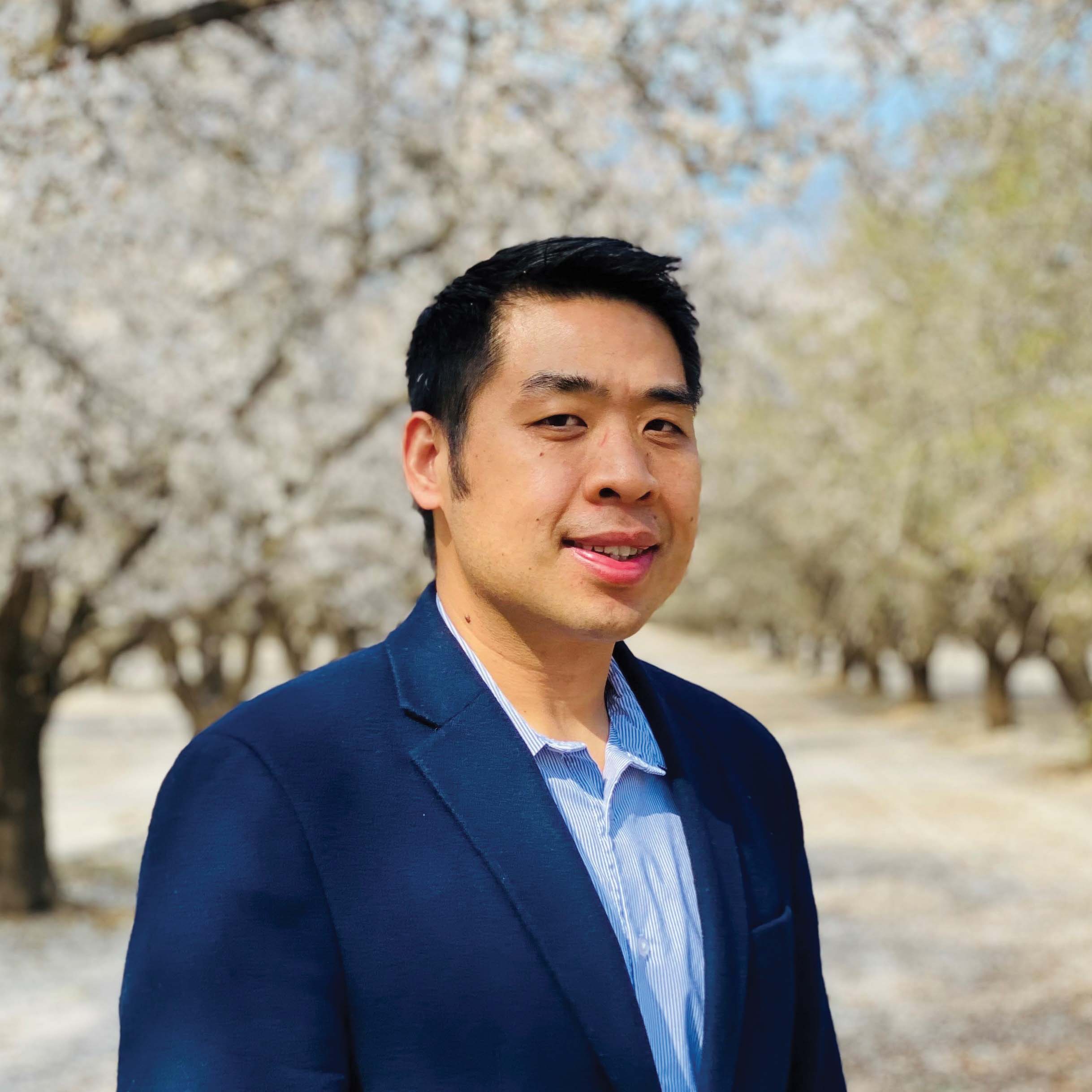
Thanh Pham
President and CEO of $57.7 million-asset California International Bank in Westminster, Calif.
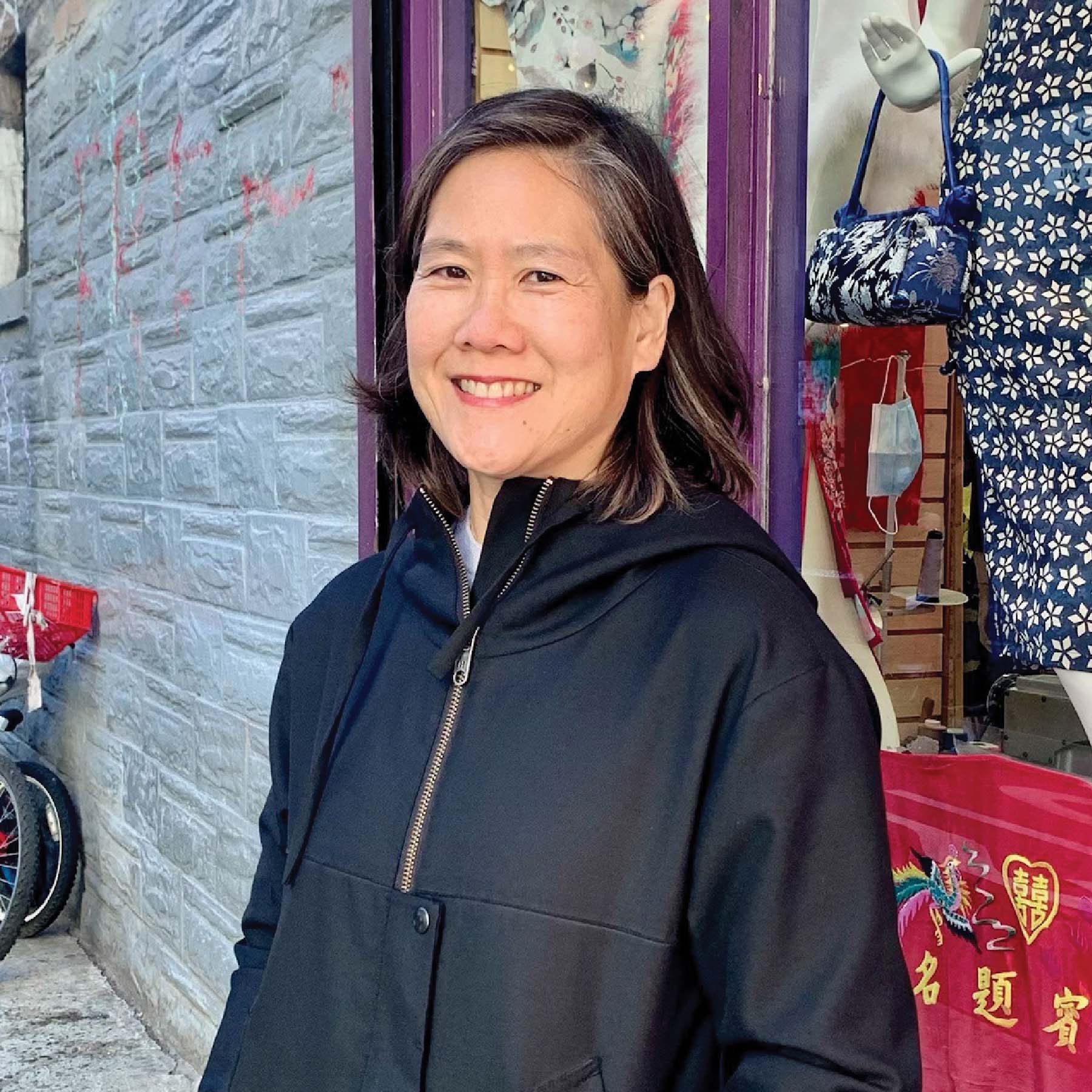
Jill Sung
CEO of $326 million-asset Abacus Federal Savings Bank in New York City
The U.S.’ minority depository institutions (MDIs) are critical to the economic health of not only their own communities but also the nation.
“MDIs are lifelines for underserved communities, fostering economic growth, reducing the wealth gap, and empowering individuals and businesses to thrive,” says Kianga Lee, ICBA’s vice president of government relations and administrative operations, and staff liaison for ICBA’s Minority Bank Advisory Council.
For example, some MDIs hire bilingual staff to overcome language barriers, allowing for effective communication and developing trust within immigrant communities. They also provide microloans to minority-owned small business customers who may otherwise have a hard time getting funding.
MDIs also offer programs for first-generation homebuyers, because homeownership is key for building wealth and creating stability for families, says Lee. Beyond loans, MDIs play a vital role in creating pathways to generational wealth for minority and low- to moderate-income (LMI) communities.
“By providing access to products and services, education and tailored support, MDIs empower their customers to build financial strength and ensure marginalized groups have a fair opportunity to succeed financially,” she says.
We asked several members of ICBA’s Minority Bank Advisory Council to share their perspectives on how MDIs help their customers and communities, and—importantly—the support they need to continue this work.
Q: What are some advantages that come from banking with an MDI?
Thanh Pham: MDIs play a vital role in fostering financial inclusion and economic empowerment within underserved and minority communities. These institutions focus on offering tailored financial products and services, such as small business loans, that meet the unique needs of their diverse customer base. By understanding cultural nuances and local economic dynamics, MDIs are better equipped to serve customers, providing them with access to capital, financial literacy programs and opportunities for asset building.
Jill Sung: A big part of our mission as an MDI is to address the economic marginalization our community has historically faced and continues to face today. Many of our founders and our employees have experienced these challenges themselves, so they are uniquely qualified to resolve these issues, including tailoring products and services that address the needs of our communities and educating our community about our financial system.
Sergio Ora: Our mission is to help people and businesses that can’t get financial services because they have been either overlooked or cast aside from a mainstream financial institution.
Corey Hammonds: The access to a smaller institution gives you a more well-rounded breadth of knowledge and expertise to decision-makers. Then with your access, you get impact. When you bank with an MDI, you’re making an impact in your community.
Dimitrius Hutcherson: MDIs and community banks largely provide many of the same products and programs of larger financial institutions. The community-focused aspect and the particular focus on their development in the areas in which they serve are key differentiators. In addition, MDIs tend to have a more involved focus on all customers, including the unbanked and underbanked, providing additional banking services and products that improve financial literacy, and setting pathways to growing their financial portfolio whether [they’re] purchasing a home or starting a business.
David C. Buggage: MDIs play an important role in filling in the gaps in access to quality financial products and services in underserved markets, from personal loans and specialty credit cards, like our fixed low-rate Visa, to mortgages, HELOCs and commercial lending. Community-focused banks often speak the same local languages and better understand the unique opportunities, challenges and needs of small businesses and consumers. Because of our unique community positioning and missions, we are better equipped to work with customers as new opportunities are surfaced or financial landscapes shift.
Jordan A. Miller Jr.: One of the values of MDI banks is making our customers feel like they belong. Customers walk in and feel like they are talking to someone who is listening to them and not judging them. Many of our customers say that they feel like family when they talk to us. There is something about sitting across the table from someone who has likely been in your shoes and has empathy for your situation. Our bank is located in a historically Black community that is now racially diverse. Our customer base is very diverse as well. We find that the needs of every person that walks through our doors are diverse, and we try to meet the needs of every client without bias.
Carlos P. Naudon: Minority banks tend to focus on culture and identify with the customers and small business owners at the same level. I think that minority banks tend to build trust with their communities, and that’s reflected in how members of the communities relate to us, whether they are consumers or small businesses.
Q: How has your MDI made a difference in the communities you serve?
Naudon: The best example we can talk about [is] being involved in the Treasury Department’s Emergency Capital Investment Program, or ECIP. Over 80% of our lending is [to minority businesses], meaning it’s really affecting positively the communities we serve, as spelled out under the ECIP program. We do a lot of affordable housing construction that is very impactful for the communities, because you’re putting a roof over people’s heads. You’re also now creating generational wealth, which is very rare in the communities that we tend to serve.
Buggage: We exist to help individuals, organizations and municipalities build financial opportunities in local communities by powering business and job growth, creating generational wealth with quality lending programs and providing financial literacy access. For example, Liberty Bank provided $2 million to a Maryland-based financial service institution through a warehouse line of credit. This funding supports small businesses by facilitating SBA Community Advantage Loans, ensuring vital capital reaches underserved communities. … The funding [also] helps create jobs and enhances community support services in an underserved area, enriching the community.
Miller: Adelphi Bank has only been in business since mid-2023, and we are already seeing the impact on our community. Our answer is not always yes, but we always talk about how. We may not be able to provide what you need today, but if you do these things, we will take another look. We try to provide solutions to our customers’ problems, and sometimes these are difficult conversations, but we focus on the “how”: how you can improve your credit score or improve your financial situation in order to qualify for a loan in the future.
Hutcherson: We offer products to second-chance bank account holders seeking to rebuild credit or reestablish their banking relationships. We hold national alignments with other financial literacy organizations that we collaborate with to provide free financial literacy and a variety of banking and credit building services to those in the community. We also provide creative financing for real estate, small business and much more. Another offer we provide to customers is our access to insurance and investment products for our customers who seek to broaden their financial portfolio.
Sung: Often, people tell me how our bank financed their first home or their parents’ home. For many in our community, owning their first home is still a dream they strive for. Homeownership leads to further investment in real estate, and leveraging their equity in real estate helps them grow their other businesses. To know that we helped so many people establish their roots here is extremely rewarding.
Hammonds: We have a robust first-time homebuyer down payment assistance program. We have a partnership with [financial empowerment nonprofit] Operation HOPE that provides free financial counseling and financial literacy to anyone, whether it’s a consumer or small business in the communities that we serve.
Pham: MDIs serve as a stabilizing economic force, especially in communities that have historically been marginalized by mainstream financial systems. MDIs reinvest locally, supporting neighborhood businesses and nonprofits. This commitment contributes to job creation and overall economic growth in areas that need it most.
Q: What do MDIs need to help them continue serving their communities?
Pham: To continue this essential work effectively, MDIs need ongoing support, including regulatory flexibility and capital access. They must maintain strong capitalization to withstand economic fluctuations and adapt to evolving financial technologies to meet modern customer expectations.
Miller: The biggest support we need as an MDI is more deposits to fund the credit needs of our community. Deposits are the fuel for any successful bank. From time to time, we may need technical assistance, but providing basic loan and deposit services to our community is the biggest challenge.
Naudon: The thing about MDIs is that we are very resilient, and as much as possible, we like to be self-sufficient like the communities that we serve. But realistically, to improve the community, we need sources of funding for those communities. We have branches in low- to moderate-income communities—communities that live paycheck to paycheck. They don’t have excess funds to deposit with us, that we could lend to the community. So, we are always looking for sources of funds outside of the communities that we serve. This is what government and other healthier elements of our society should be supporting, because we have a real impact in erasing the gap that exists in health and in wealth in our communities.
Buggage: Core deposits are the lifeblood of MDIs. We are the conduit to the community for state, local municipalities and mission-driven organizations that are looking to effectively drive opportunities in targeted communities. MDIs have great products, tools and resources, but not the advertising budget of the national or regional banks. Every dollar of MDI banking serves as a force multiplier for the businesses that empower communities and create opportunities for generational wealth. Together, we can make a difference.
Sung: Capital is extremely important. Given how specific MDIs’ focus is, it is difficult to attract capital from traditional sources that are used to investing purely as a numbers game. Equally important is that regulators realize the critical importance of our purpose and respect our mission. When our communities achieve financial success and economic independence, the larger society benefits. When you start from this posture, you readily recognize regulation by “one size fits all” is not feasible and is detrimental to our success and survival as MDIs.
Ora: When it comes to the regulators, we are being placed in the bucket of all financial institutions. But regulators really need to understand who we are, what we do and how our compliance with regulations can be modified so that we can do the things we need to do to help our communities.
Hammonds: For example, there’s a reserve requirement that came out a couple of years ago that was really intended for very large regional banks but has trickled down to community banks of our size. It requires a heavy expense, not only in manpower and third-party assistance, but it also requires actual funding of loan-loss reserves at levels that were not the same years back. I don’t think initially that that regulation was intended for community banks, especially MDIs.
Hutcherson: Additional program support and sponsorship for financial literacy for minority and LMI communities would be helpful. Access to participate in funded technical assistance programs that will increase the number of LMI and minority community members’ ability to qualify for and purchase homes. Create additional partnerships for MDIs to increase their involvement in affordable housing programs tailored to LMI communities.
Q: What are additional ways to support MDIs?
Pham: MDIs benefit from partnerships that offer funding and resource-sharing opportunities. Strengthening these relationships can help MDIs expand their impact while staying competitive. By receiving the tools and resources necessary to operate sustainably, MDIs can continue fostering economic resilience and upward mobility for communities traditionally excluded from financial prosperity.
Hutcherson: We would like [people] to consider becoming a customer of an MDI or CDFI [community development financial institution] and explore the many products and services our banking institution offers as part of their financial trajectory.
Ora: We would like to invite other ICBA members to open a deposit account to further improve our ability to fulfill our mission; we need good capital and liquidity.
Naudon: This has to be a united long-term effort. We need folks who have come into the country and have done well, who can now help lift others, including newer arrivals. That takes a long time, so participate and care about your community. I think this is the most important message I can deliver.

